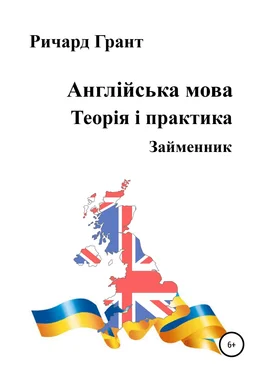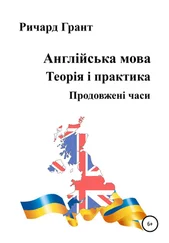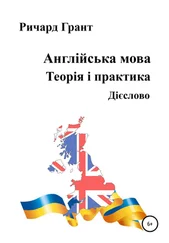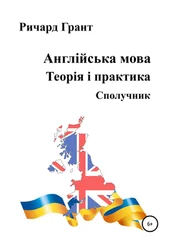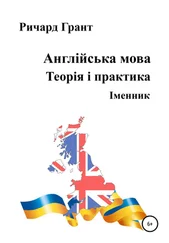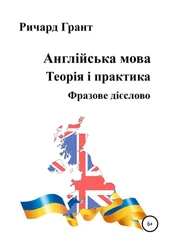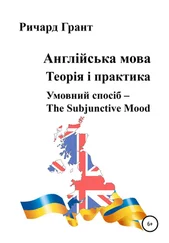Вправа 20
Знайдіть помилки в деяких реченнях і виправте їх.
1. My sister taught himself to swim. 2. Anna repaired the chair herself. 3. The children are making themselves something to eat. 4. I hurt me when I fell down the stairs. 5. We're meeting ourselves at 8.00 this evening. 6. We're enjoying ourselves very much.
Вправа 21
Дайте відповідь на питання, маючи на увазі, що всю роботу люди зробили самостійно.
Who bought that book for him? – He bought it himself.
1. Who cooked your breakfast this morning? 2. Who helped them to translate the text? 3. Who helped the little girl to dress? 4. Who helped you to find the way? 5. Who cleaned your classroom? 6. Who washes your clothes? 7. Who broke his tape-recorder? 8. Who built their house? 9. Who helped her to do maths? 10. Who planted the garden in front of your house?
Вправа 22
Заповніть пропуски зворотними займенниками, де це необхідно.
1. All our friends enjoyed … at his birthday party. 2. I often speak to … when I'm in bad mood and alone. 3. Polly and Nancy, help … to sweets and juice. 4. Concentrate … if you don't want to fail your exam. 5. They haven't decided yet where they'd meet …. 6. Little Polly is only two but she can dress …. 7. She got up, washed … and left the house without disturbing anyone. 8. I'm not angry with him. I'm angry with …. 9. Relax … when you dance. 10. They never think about other people. They only think about …. 11. Who went with her? – Nobody. She went by …. 12. Let's hide … under that tree. The rain is so heavy. 13. He feels … not well today. 14. Don't take him to the party. He'll spoil everything …. 15. We didn't know who that young guy was. He didn't introduce …. 16. It's windy, you may catch cold …. 17. Children, take the towel and dry ….
Взаємні займенники описують взаємини між двома або більше особами або, рідше, предметами.
До взаємних займенників відносяться займенники:
each other– один одного
one another– один іншого
За правилами традиційної граматики займенник each other може бути застосовано тільки до двох осіб, а one another використовується відносно більш двох осіб.
Однак на практиці це правило часто нехтують. Обидва займенники змінюються тільки за вiдмiнком (each other’s, one another’s).
We think of each other as of a good, interesting opponent. – Ми ставимося один до одного, як до доброго, цікавого суперника.
My hamsters keep stealing one another’s food. – Мої хом'яки вічно крадуть один у одного їжу.
Відповідний прийменник ставиться перед словами each або one:
We live too far from each other. – Ми живемо дуже далеко один від одного.
They are such good friends they will do anything for each other. – Вони такі хороші друзі, що один для одного що завгодно зроблять.
Вправа 23
Знайдіть помилки в деяких реченнях і виправте їх.
1. John and Mary looked at each other. I would say he looked at her with admiration. 2. Peter and Susan have met each other. 3. Elka, Yvonne and Joanna gave each other a book. 4. Three children talked to each other. They stood next to my house. 5. My uncle and I talk to each other every day. Although his character isn't easy to bear. 6. She and her brother stopped talking and looked at each other. 7. John and his mother bought each other presents for Christmas. 8. My cat and his dog looked at each other with dread. 9. Barbara's three sons and their father hate each other. 10. I think that all people should love each other. No matter where they live.
Питальні займенники – використовуються для побудови спеціальних питань.
Вони позначають невідомі запитувачу особи або предмети, які повинні бути названі у відповіді на питання.
До питальних належать такі займенники:
who – який, хто
whoever – хто б не, який би не
what – що, який
whatever – що б не, (хоч) що-небудь
which – який, хто, який
whichever – який завгодно, хоч би який
whose – чий, чия
Вживання питальних займенників
З усіх питальних займенників тільки who змінюється за відмінками і має форму об'єктного відмінка whom, проте в розмовній мові її використання необов'язково.
Whom did you invite for your birthday? – Кого ти запросив на день народження?
Займенник which, на відміну від what, передбачає вибір між обмеженим набiром осіб або предметів:
I’d paint my room in blue or yellow. Which of the colours do you like more? – Я б пофарбувала свою кімнату синім або жовтим кольором. Який із цих (двох) кольорiв тобі подобається більше?
I have no idea what colour to use in my room. What colours do you like? – Поняття не маю, в який колір пофарбувати свою кімнату. Які кольори (будь-які) тобі подобаються?
Займенники whoever, whichever і whatever в питаннях передають здивування або обурення:
Whatever is this thing on the floor? – Що це таке на підлозі?
Вправа 24
Поставте необхідний питальний займенник.
1. How … students are in the class right now? 2. … are you planning to leave? 3. … is that person next to you? 4. … are you writing a letter to? 5. … do you do for living? 6. … is the reason for your visit? We haven’t seen each other for a while. 7. … this book belong to? 8. … are you going after graduation? 9. … do you expect to be in five years? 10. … color do you prefer most? 11. … did you meet at the conference? 12. … pattern do you like? Both dresses look great. 13. … is your brother going to do with his job? 14. … did you go for the holiday? – We went to Spain. 15. … is responsible for guest accommodation in your hotel?
Читать дальше
